Tailieumoi.vn xin giới thiệu Trắc nghiệmTiếng Anh lớp 6 Unit 5: Natural wonders of Viet Nam sách Global Success. Bài viết gồm 100 câu hỏi trắc nghiệm với đầy đủ các mức độ và có hướng dẫn giải chi tiết sẽ giúp học sinh ôn luyện kiến thức và rèn luyện kĩ năng làm bài trắc nghiệm Tiếng Anh 6. Mời các bạn đón xem:
Trắc nghiệm Tiếng Anh 6 Unit 5: Natural wonders of Viet Nam
1. Trắc nghiệm Từ vựng: Natural wonders of Vietnam
Câu 1: Choose the best answer to complete the sentence. (Em hãy lựa chọn đáp án đúng nhất để hoàn thành câu)
The Amazone is ________ in Brazil.
A. rain forest
B. rainy forest
C. wet forest
D. wetter forest
Đáp án: A
Giải thích:
rain forest: rừng mưa nhiệt đới
rainy forest: rừng hay mưa
wet forest: rừng ẩm ướt
wetter forest: rừng ẩm hơn
=> The Amazone is rain forest in Brazil.
Tạm dịch:
Amazon là rừng mưa nhiệt đới ở Brazil.
Câu 2: Choose the best answer to complete the sentence. (Em hãy lựa chọn đáp án đúng nhất để hoàn thành câu)
I walk too much. I need to put ______ on my foot.
A. walking boots
B. gloves
C. scissors
D. hat
Đáp án: A
Giải thích:
walking boots: ủng đi bộ
gloves: găng tay
scissors: cây kéo
hat: mũ
=> I walk too much. I need to put walking boots on my foot.
Tạm dịch:
Tôi đi bộ quá nhiều. Tôi cần phải đi ủng đi bộ trên chân của tôi.
Câu 3: Choose the best answer to complete the sentence. (Em hãy lựa chọn đáp án đúng nhất để hoàn thành câu)
A large bag, carried on the back and used especially by people who go climbing or walking. What is it?
A. boat
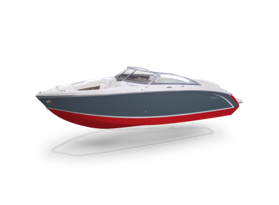
B. boots
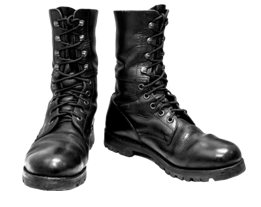
C. torch
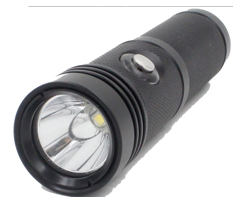
D. backpack
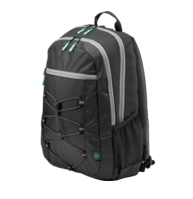
Đáp án: D
Giải thích:
boat: thuyền
boots: đôi ủng
torch: đèn pin
backpack: ba lô
Tạm dịch:
Một túi lớn, mang trên lưng và được sử dụng đặc biệt bởi những người đi leo núi hoặc đi bộ. Nó là gì?
Câu 4: Choose the best answer to complete the sentence. (Em hãy lựa chọn đáp án đúng nhất để hoàn thành câu)
_______ is large area of land that has very little water and very few plants growing on it.
A. Valley
B. Desert
C. Island
D. Mountain
Đáp án: B
Giải thích:
Valley: thung lũng
Desert: sa mạc
Island: hòn đảo
Mountain: ngọn núi
=> Desert is large area of land that has very little water and very few plants growing on it.
Tạm dịch:
Sa mạc là một vùng đất rộng lớn có rất ít nước và rất ít thực vật mọc trên đó.
Câu 5: Choose the best answer to complete the sentence. (Em hãy lựa chọn đáp án đúng nhất để hoàn thành câu)
We use _______ to cut papers or something.
A. scissors
B. valley
C. plaster
D. compass
Đáp án: A
Giải thích:
scissors: cây kéo
valley: thung lũng
plaster: băng dán cá nhân
compass: la bàn
=> We use scissors to cut papers or something.
Tạm dịch:
Chúng tôi sử dụng kéo để cắt giấy tờ hoặc một thứ gì đó.
Câu 6: Match the pictures with their names.
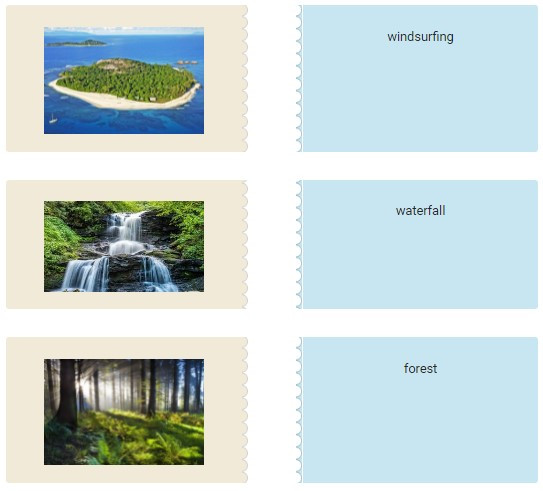

Đáp án:
Giải thích:
- windsurfing: lướt sóng
- waterfall: thác nước
- forest: rừng
- island: đảo
Câu 7: Choose the best answer to complete the sentence. (Em hãy lựa chọn đáp án đúng nhất để hoàn thành câu)
The cave is very dark, you should bring the _______with you.
A. torch

B. compass

C. sleeping bag
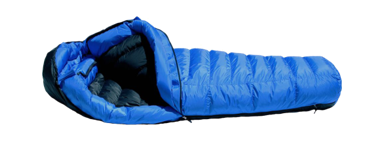
D. hat

Đáp án: A
Giải thích:
torch: đèn pin
compass: la bàn
sleeping bag: túi ngủ
hat: mũ
=> The cave is very dark, you should bring the torch with you.
Tạm dịch:
Hang rất tối, bạn nên mang theo đèn pin.
Câu 8: Choose the best answer to complete the sentence. (Em hãy lựa chọn đáp án đúng nhất để hoàn thành câu)
A group of _______ set up camp in the field.
A. travel
B. travelling
C. travels
D. travellers
Đáp án: D
Giải thích:
travel: du lịch
travelling: đi du lịch
travels: những chuyến du lịch
travelers: những du khách
=> A group of travelers set up camp in the field.
Tạm dịch:
Một nhóm những du khách dựng trại trên cánh đồng.
Câu 9: Choose the best answer to complete the sentence. (Em hãy lựa chọn đáp án đúng nhất để hoàn thành câu)
Mount Everest is the highest mountain _______ the world.
A. under
B. in
C. at
D. of
Đáp án: B
Giải thích:
uner: dưới
in: trong
at: tại
of: của
=> Mount Everest is the highest mountain in the world.
Tạm dịch:
Núi Everest là ngọn núi cao nhất thế giới.
Câu 10: Choose the best answer to complete the sentence. (Em hãy lựa chọn đáp án đúng nhất để hoàn thành câu)
She is going to introduce some ________wonders of the world tomorrow.
A. nature
B. natural
C. naturally
D. unnaturally
Đáp án: B
Giải thích:
nature: thiên nhiên
natural: thuộc về tự nhiên
naturally: một cách tự nhiên
unnaturally: một cách không tự nhiên.
Cụm từ Natural wonders of the World: Kì quan thiên nhiên thế giới.
=> She is going to introduce some natural wonders of the world tomorrow.
Tạm dịch:
Cô ấy sẽ giới thiệu một số kỳ quan thiên nhiên của thế giới vào ngày mai.
Câu 11: Choose the best answer to complete the sentence. (Em hãy lựa chọn đáp án đúng nhất để hoàn thành câu)
If you want to protect your skin from the sunlight, you should use some _______.
A. scissors
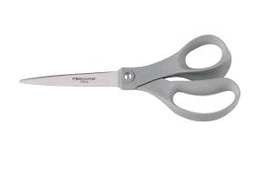
B. ice-creams

C. sun cream
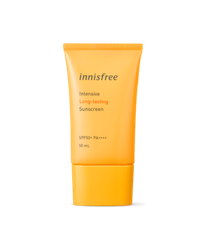
D. pain killers

Đáp án: A
Giải thích:
scissors: cây kéo
ice-creams: cây kem
sun cream: kem chống nắng
pain killers: thuốc giảm đau
=> If you want to protect your skin from the sunlight, you should use some sun cream.
Tạm dịch:
Nếu bạn muốn bảo vệ làn da của bạn khỏi ánh sáng mặt trời, bạn nên sử dụng một số loại kem chống nắng.
The book is a adventure story. (THRILL)
Đáp án:
Giải thích:
Chỗ cần điền là một tính từ bổ sung ý nghĩa cho danh từ truyện phiêu lưu (adventure story)
Thirll (n,v – run, hồi hộp) => Thrilling (adj)
Đáp án: The book is a thrilling adventure story.
Tạm dịch: Cuốn sách là một câu chuyện phiêu lưu ly kỳ.
The of this waterfall amazes every visitors. (BEAUTIFUL)
Đáp án:
Giải thích:
Sau mạo từ the là một danh từ
Beautiful (adj, xinh đẹp) => beauty (n)
Đáp án: The beauty of this waterfall amazes every visitors.
Tạm dịch: Vẻ đẹp của thác nước này làm mọi du khách phải kinh ngạc.
It is to walk a long the coast at night. (INTEREST)
Đáp án:
Giải thích:
Cấu trúc: It+be+adj+to+V_infi (làm sao khi làm công việc gì)
Interest (n, v – thích thú, tham gia) => interesting (adj)
Đáp án: It is interesting to walk a long the coast at night.
Tạm dịch: Thật thú vị khi đi bộ bên bờ biển dài vào ban đêm.
Ha Long Bay is recognised as one of the most beautiful wonders in the world. (NATURE)
Đáp án:
Giải thích:
Chỗ cần điền là một tính từ bổ sung ý nghĩa cho danh từ kì quan (wonders)
Nature (n, sự tự nhiên) => natural (adj)
Đáp án: Ha Long Bay is recognised as one of the most beautiful natural wonders in the world.
Tạm dịch: Vịnh Hạ Long được công nhận là một trong những kỳ quan thiên nhiên đẹp nhất thế giới.
2. Trắc nghiệm Ngữ âm: /t/ & /d/
Câu 1: Chọn từ có phần gạch chân đọc khác với các từ còn lại
A. report
B. picture
C. top
D. ten
Đáp án: B
Giải thích:
report /rɪˈpɔːt/
picture /ˈpɪktʃə(r)/
top /tɒp/
ten/ten/
Đáp án B phát âm là / tʃ / còn lại là / t /
Câu 2: Chọn từ có phần gạch chân đọc khác với các từ còn lại
A. decision
B. education
C. dentist
D. find
Đáp án: D
Giải thích:
A. decision /dɪˈsɪʒən/
B. education /ˌedʒuˈkeɪʃn/
C. dentist /ˈdɛntɪst/
D. find/faɪnd/
Đáp án D đọc là /dʒ/, các đáp án còn lại đọc /d/
Câu 3: Chọn từ có phần gạch chân đọc khác với các từ còn lại
A. teacher
B. picture
C. tent
D. tall
Đáp án: B
Giải thích:
A. teacher/ˈtiːʧə/
B. picture/ˈpɪkʧə/
C. tent/tɛnt/
D. tall/tɔːl/
Đáp án B đọc là /ʧ/, các đáp án còn lại đọc là /t/
Câu 4: Chọn từ có phần gạch chân đọc khác với các từ còn lại
A. two
B. take
C. nature
D. stay
Đáp án: C
Giải thích:
A. two /tuː/
B. take /teɪk/
C. nature /ˈneɪʧə/
D. stay/steɪ/
Đáp án C đọc là /ʧ/, các đáp án còn lại đọc là /t/
Câu 5: Chọn từ có phần gạch chân đọc khác với các từ còn lại
A. nation
B. potential
C. determine
D. information
Đáp án: C
Giải thích:
A. nation /ˈneɪʃən/
B. potential /pəʊˈtɛnʃəl/
C. determine /dɪˈtɜːmɪn/
D. information/ˌɪnfəˈmeɪʃən/
Đáp án C đọc là /t/, các đáp án còn lại đọc /ʃ/
Câu 6: Chọn từ có phần gạch chân đọc khác với các từ còn lại
A. future
B. question
C. culture
D. store
Đáp án: D
Giải thích:
A. future /ˈfjuːʧə/
B. question /ˈkwɛsʧən/
C. culture /ˈkʌlʧə/
D. store/stɔː/
Đáp án D đọc là /t/, các đáp án còn lại đọc là /ʧ/
Câu 7: Chọn từ có phần gạch chân đọc khác với các từ còn lại
A. ambitious
B. tooth
C. computer
D. fluent
Đáp án: A
Giải thích:
A. ambitious /æmˈbɪʃəs/
B. tooth /tuːθ/
C. computer /kəmˈpjuːtə/
D. fluent/ˈflu(ː)ənt/
Đáp án A đọc là /ʃ/, các đáp án còn lại đọc là /t/
Câu 8: Chọn từ có phần gạch chân đọc khác với các từ còn lại
A. tried
B. obeyed
C. cleaned
D. asked
Đáp án: D
Giải thích:
A. tried /traɪd/
B. obeyed/əˈbeɪd/
C. cleaned /kliːnd/
D. asked /ɑːskt/
Đáp án D đọc là /t/, các đáp án còn lại đọc là /d/
Câu 9: Chọn từ có phần gạch chân đọc khác với các từ còn lại
A. called
B. passed
C. talked
D. washed
Đáp án: A
Giải thích:
A. called /kɔːld/
B. passed /pɑːst/
C. talked /tɔːkt/
D. washed /wɒʃt/
Đáp án A đọc là /d/, các đáp án còn lại đọc là /t/
Câu 10: Chọn từ có phần gạch chân đọc khác với các từ còn lại
A. doctor
B. handsome
C. daughter
D. destination
Đáp án: B
Giải thích:
A. doctor /ˈdɒktə/
B. handsome /ˈhænsəm/
C. daughter /ˈdɔːtə/
D. destination /ˌdɛstɪˈneɪʃən/
Đáp án B âm “d” câm, các đáp án còn lại đọc là /d/
Câu 11: Chọn từ có phần gạch chân đọc khác với các từ còn lại
A. dinner
B. dirty
C. graduate
D. dance
Đáp án: C
Giải thích:
A. dinner /ˈdɪnə/
B. dirty /ˈdɜːti/
C. graduate /ˈɡrædʒuət/
D. dance /dɑːns/
Đáp án C đọc là /dʒ/, các đáp án còn lại đọc là /d/
Câu 12: Chọn từ có phần gạch chân đọc khác với các từ còn lại
A. sandwich
B. address
C. difficult
D. dangerous
Đáp án: A
Giải thích:
A. sandwich /ˈsænwɪʤ/
B. address /əˈdrɛs/
C. difficult /ˈdɪfɪkəlt/
D. dangerous/ˈdeɪnʤrəs/
Đáp án A âm “d” câm, các đáp án còn lại đọc là /d/
Câu 13: Chọn từ có phần gạch chân đọc khác với các từ còn lại
A. day
B. Wednesday
C. study
D. good
Đáp án: B
Giải thích:
A. day /deɪ/
B. Wednesday /ˈwɛnzdeɪ/
C. study /ˈwɛnzdeɪ/
D. good/gʊd/
Đáp án B âm “d” câm, các đáp án còn lại đọc là /d/
Câu 14: Chọn từ có phần gạch chân đọc khác với các từ còn lại
A. friend
B. food
C. advise
D. module
Đáp án: D
Giải thích:
A. friend/frɛnd/
B. food/fuːd/
C. advise /ədˈvaɪz/
D. module /ˈmɑːdʒuːl/
Đáp án D đọc là /dʒ/, các đáp án còn lại đọc là /d/
Câu 15: Chọn từ có phần gạch chân đọc khác với các từ còn lại
A. depend
B. do
C. handkerchief
D. deep
Đáp án: C
Giải thích:
A. depend /dɪˈpɛnd/
B. do /dəʊ/
C. handkerchief /ˈhæŋkəʧɪf/
D. deep /diːp/
Đáp án C âm “d” câm, các đáp án còn lại đọc là /d/
3. Trắc nghiệm Ngữ pháp: Danh từ đếm được và danh từ không đếm được
Câu 1: Put the words into the correct column.
Beef, banana, pepper, bread, apple
|
Countable nouns |
Uncountable nouns |
|
|
|
Đáp án:
Giải thích:
banana (chuối) và apple (táo) là danh từ có thể dùng được với số đếm => là danh từ đếm được
beef (thịt bò), bread (bánh mì) là chất nhão, sệt => là danh từ không đếm được
pepper (hạt tiêu) là hạt nhỏ không đếm dược => là danh từ không đếm được
Cake, cheese, woman, butter, butterfly
|
Countable nouns |
Uncountable nouns |
|
|
|
Đáp án:
Giải thích:
Cake (bánh), woman (người phụ nữ), butterfly (con bướm) là danh từ có thể dùng được với số đếm => là danh từ đếm được
Cheese (phô mai), butter (bơ) là chất nhão, sệt => là danh từ không đếm được
Money,information, egg, tea, sugar
|
Countable nouns |
Uncountable nouns |
|
|
|
Đáp án:
Giải thích:
egg (trứng) là danh từ có thể dùng được với số đếm => là danh từ đếm được
money (tiền), information (thông tin) là những danh từ trừu tượng => là danh từ không đếm được
tea (trà) là chất lỏng => danh từ không đếm được
sugar (đường) là hạt nhỏ không đếm được => là danh từ không đếm được
ice-cream,leaf, salad, bottle, beer
|
Countable nouns |
Uncountable nouns |
|
|
|
Đáp án:
Giải thích:
Ice-cream (kem), leaf (lá), bottle (chai) là danh từ có thể dùng được với số đếm => là danh từ đếm được
salad (sa lát) là danh từ không đếm được
beer (bia) là chất lỏng => là danh từ không đếm được
Food, sandwich, artist, chocolate, salt
|
Countable nouns |
Uncountable nouns |
|
|
|
Đáp án:
Giải thích:
Sandwich (bánh mì kẹp), artist (nghệ sĩ) là danh từ có thể dùng được với số đếm => là danh từ đếm được
Food (thức ăn) là danh từ trừu tượng => là danh từ không đếm được
chocolate (sô cô la) => là chất nhão, chất sệt => danh từ không đếm được
salt (muối) là hạt nhỏ không đếm được => là danh từ không đếm được
Would you like coffee?
Đáp án:
Giải thích:
- “a” đứng trước danh từ đếm được số ít, bắt đầu bằng 1 phụ âm
- “an” đứng trước danh từ đếm được số ít, bắt đầu bằng 1 nguyên âm
- “some” đứng trước cả danh từ đếm được và không đếm được
“coffee” (cà phê) là danh từ không đếm được nên không thể điền “a/ an” mà chỉ có thể dùng lượng từ “some” (một chút)
=> Would you like some coffee?
Tạm dịch: Bạn có muốn uống cà phê không?
Would you like piece of chocolate?
Đáp án:
Giải thích:
- “a” đứng trước danh từ đếm được số ít, bắt đầu bằng 1 phụ âm
- “an” đứng trước danh từ đếm được số ít, bắt đầu bằng 1 nguyên âm
- “some” đứng trước cả danh từ đếm được và không đếm được
“chocolate” là danh từ không đếm được nhưng khi kết hợp với “piece” (miếng) là danh từ đếm được nên cụm từ “piece of chocolate” (miếng sô cô la) là danh từ đếm được
-> dùng mạo từ “a” vì “piece” bắt đầu bằng phụ âm
=> Would you like a piece of chocolate?
Tạm dịch: Bạn có muốn một miếng sô cô la không?
Would you like glass of lemomnade?
Đáp án:
Giải thích:
- “a” đứng trước danh từ đếm được số ít, bắt đầu bằng 1 phụ âm
- “an” đứng trước danh từ đếm được số ít, bắt đầu bằng 1 nguyên âm
- “some” đứng trước cả danh từ đếm được và không đếm được
“lemomnade” (nước chanh) là danh từ không đếm được nhưng khi kết hợp với “glass” (cốc) là danh từ đếm được nên cụm từ “glass of lemomnade” (cốc nước chanh) là danh từ đếm được
-> dùng mạo từ “a” vì “piece” bắt đầu bằng phụ âm
=> Would you like a glass of lemomnade?
Tạm dịch: Bạn có muốn một ly nước chanh không?
Cris bought hat, magazines.
Đáp án:
Giải thích:
- “a” đứng trước danh từ đếm được số ít, bắt đầu bằng 1 phụ âm
- “an” đứng trước danh từ đếm được số ít, bắt đầu bằng 1 nguyên âm
- “some” đứng trước cả danh từ số nhiều đếm được và danh từ không đếm được
“hat” là danh từ đếm được, bắt đầu bằng phụ âm nên ta điền mạo từ “a”
“magazines” là danh từ số nhiều đếm được nên ta điền “some”
=> Cris bought a hat, some magazines.
Tạm dịch: Cris đã mua một chiếc mũ, một số tạp chí.
I read interesting book!
Đáp án:
Giải thích:
- “a” đứng trước danh từ đếm được số ít, bắt đầu bằng 1 phụ âm
- “an” đứng trước danh từ đếm được số ít, bắt đầu bằng 1 nguyên âm
- “some” đứng trước cả danh từ đếm được và không đếm được
“book” là danh từ đếm được nên ta điền mạo từ “a/an”
Đứng trước danh từ “book” là tính từ “interesting” bắt đầu bằng một nguyên âm nên t phải điền “an”
=> I read an interesting book!
Tạm dịch: Tôi đọc một cuốn sách thú vị!
There is sand in my shoe.
Đáp án:
Giải thích:
- “a” đứng trước danh từ đếm được số ít, bắt đầu bằng 1 phụ âm
- “an” đứng trước danh từ đếm được số ít, bắt đầu bằng 1 nguyên âm
- “some” đứng trước cả danh từ đếm được và không đếm được
“sand” (cát) là danh từ không đếm được nên ta điền “some”
=> There is some sand in my shoe.
Tạm dịch: Có một ít cát trong giày của tôi.
There is apple in the fridge.
Đáp án:
Giải thích:
- “a” đứng trước danh từ đếm được số ít, bắt đầu bằng 1 phụ âm
- “an” đứng trước danh từ đếm được số ít, bắt đầu bằng 1 nguyên âm
- “some” đứng trước cả danh từ đếm được và không đếm được
“apple” là danh từ đếm được, bắt đầu bằng nguyên âm nên ta điền mạo từ “an”
=> There is an apple in the fridge.
Tạm dịch: Có một quả táo trong tủ lạnh.
There are three (apple) on the table.
Đáp án:
Giải thích:
Cấu trúc: There are + (số lượng) + N số nhiều đếm được (Có ….)
“apple” (quả táo) là danh từ đếm được nên để biến đổi thành danh từ số nhiều, ta thêm “s” vào cuối từ
=> There are three apples on the table.
Tạm dịch: Có ba quả táo trên bàn.
This (cheese) is too salty.
Đáp án:
Giải thích:
“cheese” (phô mai) là danh tư không đếm được nên không có dạng số nhiều, số ít => giữ nguyên danh từ “cheese”
=> This cheese is too salty.
Tạm dịch: Phô mai này quá mặn.
I usually drink (milk) in the morning.
Đáp án:
Giải thích:
“milk” (phô mai) là danh tư không đếm được nên không có dạng số nhiều, số ít => giữ nguyên danh từ “milk”
=> I usually drink milk in the morning.
Tạm dịch: Tôi thường uống sữa vào buổi sáng.
My (friend) are John and Anna.
Đáp án:
Giải thích:
Ta thấy động từ tobe được chia là “are” (dạng số nhiều) nên danh từ “friend” phải là danh từ số nhiều
“friend” (bạn) là danh từ đếm được nên để biến đổi thành danh từ số nhiều, ta thêm “s” vào cuối từ
=> My friends are John and Anna.
Tạm dịch: Bạn của tôi là John và Anna.
Today I meet a new (student).
Đáp án:
Giải thích:
Ta thấy phía trước danh từ có mạo từ “a” nên danh từ phải ở dạng số ít
“student” (học sinh) là danh từ đếm được nên khi ở dạng số ít, danh từ vẫn giữ nguyên
=> Today I meet a new student.
Tạm dịch: Hôm nay tôi gặp một học sinh mới.
All her (dress) are beautiful.
Đáp án:
Giải thích:
All +N số nhiều đếm được: tất cả…
“dress” (bạn) là danh từ đếm được nên để biến đổi thành danh từ số nhiều, ta thêm “es” vào cuối từ
=> All her dresses are beautiful.
Tạm dịch: Tất cả những chiếc váy của cô ấy đều đẹp.
How much (money) do you have?
Đáp án:
Giải thích:
Cấu trúc: How much + N không đếm được + do/ does + S + have? (Có bao nhiêu….)
“money” (tiền) là danh tư không đếm được nên không có dạng số nhiều, số ít => giữ nguyên danh từ “money”
=> How much money do you have?
Tạm dịch: Bạn có bao nhiêu tiền?
There is sugar in your tea.
Đáp án:
Giải thích:
- “a” đứng trước danh từ đếm được số ít, bắt đầu bằng 1 phụ âm
- “an” đứng trước danh từ đếm được số ít, bắt đầu bằng 1 nguyên âm
- “some” đứng trước cả danh từ đếm được và không đếm được
“sugar” (đường) là danh từ không đếm được nên ta điền “some”
=> There is some sugar in your tea.
Tạm dịch: Có một ít đường trong trà của bạn.
4. Trắc nghiệm Ngữ pháp: Động từ khuyết thiếu “must”
Câu 1: Choose the best answer to complete the sentence.
You _______ across the road without looking around.
A. must
B. mustn’t
C. can
D. don’t have to
Đáp án: B
Giải thích:
Can: có thể
Must: phải, được phép
Mustn’t: hàm ý bạn không được làm gì hoặc không có lựa chọn nào khác
Don’t have to: có nghĩa là không cần thiết, tức là bạn có “toàn quyền” quyết định xem có làm việc đó hay không.
Đáp án: You mustn’t across the road without looking around.
Tạm dịch: Bạn không được băng qua đường mà không nhìn xung quanh
This is the smoking room at this airport . You ______ smoke in this room.
A. must
B. mustn't
C. can
D. don't have to
Đáp án: C
Giải thích:
Can: có thể
Must: phải, được phép
Mustn’t: hàm ý bạn không được làm gì hoặc không có lựa chọn nào khác
Don’t have to: có nghĩa là không cần thiết, tức là bạn có “toàn quyền” quyết định xem có làm việc đó hay không.
Đáp án: This is the smoking room at this airport. You can smoke in this room.
Tạm dịch: Đây là phòng hút thuốc trong sân bay. Bạn có thể hút thuốc trong phòng.
Câu 3: Choose the best answer to complete the sentence.
I _______ do my homework. My teacher said so.
A. can
B. mustn't
C. have to
D. don't have to
Đáp án: C
Giải thích:
Mustn’t: hàm ý bạn không được làm gì hoặc không có lựa chọn nào khác
Don’t have to: có nghĩa là không cần thiết, tức là bạn có “toàn quyền” quyết định xem có làm việc đó hay không.
"have to" (phải) được dùng để đề cập đến một việc hay một nghĩa vụ cần thiết phải làm do tác động bên ngoài.
Đáp án:
I have to do my homework. My teacher said so.
Tạm dịch: Tôi phải làm bài về nhà. Giáo viên của tôi cũng nói vậy.
Câu 4: Choose the best answer to complete the sentence.
You ________ speak on the mobile phone on an aeroplane.
A. can
B. must
C. mustn't
D. don’t have to
Đáp án: C
Giải thích:
Can: có thể
Must: phải, được phép
Mustn’t: hàm ý bạn không được làm gì hoặc không có lựa chọn nào khác
Don’t have to: có nghĩa là không cần thiết, tức là bạn có “toàn quyền” quyết định xem có làm việc đó hay không.
Quy tắc trên máy bay là không được gọi điện thoại => dùng mustn’t
Đáp án: You mustn’t speak on the mobile phone on an aeroplane.
Tạm dịch: Bạn không được phép nói trên điện thoại di động trên máy bay.
Câu 5: Choose the best answer to complete the sentence.
You____ put the rubbish into the bin.
A. must
B. mustn't
C. has to
D. don't have to
Đáp án: A
Giải thích:
Chủ ngữ là you (bạn) không đi với has to => loại C
Must: phải, được phép
Mustn’t: hàm ý bạn không được làm gì hoặc không có lựa chọn nào khác
Don’t have to: có nghĩa là không cần thiết, tức là bạn có “toàn quyền” quyết định xem có làm việc đó hay không.
Đáp án: You must put the rubbish into the bin.
Tạm dịch: Bạn phải bỏ rác vào thùng.
Câu 6: Choose the best answer to complete the sentence.
I ______ watch TV late at night. My parents say I must go to bed early.
A. can't
B. must
C. can
D. don’t have to
Đáp án: A
Giải thích:
Must: phải, được phép
Can: có thể
Can’t: không thể
Don’t have to: có nghĩa là không cần thiết
Đáp án: I can't watch TV late at night. My parents say I must go to bed early.
Tạm dịch: Tôi không thể xem TV vào đêm khuya. Bố mẹ tôi nói tôi phải đi ngủ sớm.
Câu 7: Choose the best answer to complete the sentence.
We _______ eat sweets in the classrooms.
A. can
B. must
C. mustn't
D. don't have to
Đáp án: C
Giải thích:
Must: phải, được phép
Mustn’t: hàm ý bạn không được làm gì hoặc không có lựa chọn nào khác
Can: có thể
Don’t have to: lại có nghĩa là không cần thiết, tức là bạn có “toàn quyền” quyết định xem có làm việc đó hay không.
Trường hợp này là nội quy lớp học không được ăn trong giờ => dùng mustn’t
Đáp án: We mustn’t eat sweets in the classrooms.
Tạm dịch: Chúng ta không được ăn đồ ngọt trong lớp học.
Câu 8: Choose the best answer to complete the sentence.
Travelling on mountains is really dangerous, so you _____ go alone.
A. should
B. can
C. must
D. mustn’t
Đáp án: D
Giải thích:
Must: phải, được phép
Mustn’t: hàm ý bạn không được làm gì hoặc không có lựa chọn nào khác
Can’t: không thể
Should: nên
Đáp án: Travelling on mountains is really dangerous, so you mustn’t go alone.
Tạm dịch: Du lịch trên núi thực sự nguy hiểm, vì vậy bạn không được đi một mình.
Câu 9: Choose the best answer to complete the sentence.
You _____ pick up flowers in the school garden.
A. must
B. mustn't
C. can’t
D. should
Đáp án: B
Giải thích:
Must: phải, được phép
Mustn’t: hàm ý bạn không được làm gì hoặc không có lựa chọn nào khác
Can’t: không thể
Should: nên
Đáp án: You mustn’t pick up flowers in the school garden.
Tạm dịch: Bạn không được nhặt hoa trong vườn trường.
mustn't / don't have to
You …. tell anyone. It is a big secret.
Đáp án:
Giải thích:
Mustn’t: hàm ý bạn không được làm gì hoặc không có lựa chọn nào khác
Don’t have to lại có nghĩa là không cần thiết, tức là bạn có “toàn quyền” quyết định xem có làm việc đó hay không.
Trong trường hợp này hành động nói cho mọi người là không được phép (theo ý kiến chủ quan của người nói) => dùng mustn’t
Đáp án: You mustn’t tell anyone. It is a big secret.
Tạm dịch: Bạn không được nói cho ai biết. Đó là một bí mật lớn.
mustn't/ don't have to
You … drive there. You can take the train.
Đáp án:
Giải thích:
Mustn’t: hàm ý bạn không được làm gì (cấm làm gì)
Don’t have to lại có nghĩa là không cần thiết, tức là bạn có “toàn quyền” quyết định xem có làm việc đó hay không.
Trong trường hợp này hành động lái xe đến được người nói cho rằng không quan trọng, mang tính ý kiến chủ quan => dùng don’t have to
Đáp án: You don’t have to drive there. You can take the train.
Tạm dịch: Bạn không cần phải lái xe đến đó. Bạn có thể đi tàu.
Must / have to
I … go. Otherwise I’ll miss the train.
Đáp án:
Giải thích:
- "must" được dùng để đề cập đến một việc hay một nghĩa vụ cần thiết phải làm do cá nhân người nói nghĩ hay đồng ý là đúng và quan trọng.
- "have to" (phải) được dùng để đề cập đến một việc hay một nghĩa vụ cần thiết phải làm do tác động bên ngoài.
Trường hợp này việc rời đi là do hoàn cảnh bắt buộc, nếu không sẽ bị lỡ tàu
=> dùng “have to”
Đáp án: I have to go. Otherwise I’ll miss the train.
Tạm dịch: Tôi phải đi Nếu không tôi sẽ lỡ tàu.
Câu 13: Choose the best answer. (Em hãy kéo, thả đáp án đúng vào chỗ trống)
Must / have to
The sign says “Stop”. You … stop here.
Đáp án:
Giải thích:
- "must" được dùng để đề cập đến một việc hay một nghĩa vụ cần thiết phải làm do cá nhân người nói nghĩ hay đồng ý là đúng và quan trọng.
- "have to" (phải) được dùng để đề cập đến một việc hay một nghĩa vụ cần thiết phải làm do tác động bên ngoài.
Trường hợp này hiệu lệnh dừng lại là một nghĩa vụ cần thiết phải tuân theo (tín hiệu giao thông) => dùng “have to”
Đáp án: The sign says “Stop”. You have to stop here.
Tạm dịch: Biển báo thông báo "Dừng lại". Bạn phải dừng lại ở đây.
Must / mustn't
You … do more exercise to stay fit.
Đáp án:
Giải thích:
Giải thích:
- Dựa vào ngữ nghĩa của câu, cụm từ do exercise (tập thể dục) và stay fit (giữ dáng)
Đáp án: You must do more exercise to stay fit.
Tạm dịch: Bạn phải tập thể dục nhiều hơn để giữ dáng.
Must / mustn't
We … be home by 9.00 o’clock. The film starts at 9.15.
Đáp án:
Giải thích:
- must + V: phải làm gì
- mustn’t + V: cấm làm gì
Dựa vào ngữ nghĩa của câu
Đáp án: We must be home by 9.00 o’clock. The film starts at 9.15.
Tạm dịch: Chúng tôi phải về nhà trước 9 giờ. Bộ phim bắt đầu lúc 9.15.
Must / mustn't
The baby is sleeping. You … turn the music too loud.
Đáp án:
Giải thích:
Dựa vào ngữ nghĩa của câu, cụm từ turn the music too loud (mở nhạc lớn)
The baby is sleeping (em bé đang ngủ)
Đáp án: The baby is sleeping. You mustn’t turn the music too loud.
Tạm dịch: Em bé đang ngủ. Bạn không được bật nhạc quá to.
Must / mustn't
You … tidy up your room.
Đáp án:
Giải thích:
Dựa vào ngữ nghĩa của câu, cụm từ tidy up (dọn dẹp)
Đáp án: You must tidy up your room.
Tạm dịch: Bạn phải dọn dẹp phòng của bạn.
Must / mustn't
It’s late. You … make so much noise.
Đáp án:
Giải thích:
Dựa vào ngữ nghĩa của câu, cụm từ make noise (tạo ra tiếng ồn)
Đáp án: It’s late. You mustn’t make so much noise.
Tạm dịch: Muộn rồi. Bạn không được tạo ra quá nhiều tiếng ồn.
5. Trắc nghiệm Reading đọc hiểu: Natural wonders of Vietnam
Câu 1: Read the passage carefully and answer the question.
Da Nang has a population of nearly 800,000 people. The Han River flows through the city. The city part on the east bank is the newest and more spacious. The city part on the west bank is more crowded. There are five bridges across the river. The Han River Bridge is the newest one now. The cost of living in Da Nang is the lowest in Central Viet Nam. Da Nang has many beaches. Among them, Non Nuoc Beach is one of the beautiful beaches in the world. But walking in the street on a summer afternoon is not a good idea in Da Nang. There are not many trees so there are not many shadows. It is often very hot at noon.
What is the population of Da Nang?
A. 800,000
B. over 800,000
C. nearly 800,000
D. x
Đáp án: C
Giải thích:
Tạm dịch câu hỏi:
Dân số Đà Nẵng là bao nhiêu?
A. 800,000
B. hơn 800,000
C. gần 800,000
Thông tin: Da Nang has a population of nearly 800,000 people.
(Đà Nẵng có dân số gần 800.000 người.)
Câu 2: Read the passage carefully and answer the question.
Da Nang has a population of nearly 800,000 people. The Han River flows through the city. The city part on the east bank is the newest and more spacious. The city part on the west bank is more crowded. There are five bridges across the river. The Han River Bridge is the newest one now. The cost of living in Da Nang is the lowest in Central Viet Nam. Da Nang has many beaches. Among them, Non Nuoc Beach is one of the beautiful beaches in the world. But walking in the street on a summer afternoon is not a good idea in Da Nang. There are not many trees so there are not many shadows. It is often very hot at noon.
Which part of the city is more spacious?
A. The city part on the west bank
B. The city part on the east bank
C. The Han River
D. x
Đáp án: B
Giải thích:
Tạm dịch:
Phần nào của thành phố rộng rãi hơn?
A. Phần thành phố ở bờ tây
B. Phần thành phố ở bờ phía đông
C. Sông Hàn
Thông tin: The city part on the east bank is the newest and more spacious.
(Phần thành phố bên bờ phía đông là mới nhất và rộng rãi hơn.)
Câu 3: Read the passage carefully and answer the question.
Da Nang has a population of nearly 800,000 people. The Han River flows through the city. The city part on the east bank is the newest and more spacious. The city part on the west bank is more crowded. There are five bridges across the river. The Han River Bridge is the newest one now. The cost of living in Da Nang is the lowest in Central Viet Nam. Da Nang has many beaches. Among them, Non Nuoc Beach is one of the beautiful beaches in the world. But walking in the street on a summer afternoon is not a good idea in Da Nang. There are not many trees so there are not many shadows. It is often very hot at noon.
How many bridges across the Han River?
A. 3
B. 4
C. 5
D. x
Đáp án: C
Giải thích:
Tạm dịch:
Có bao nhiêu cây cầu bắc qua sông Hàn?
A. 3
B. 4
C. 5
Thông tin:
There are five bridges across the river.
(Có năm cây cầu bắc qua dòng sông này.)
Câu 4: Read the passage carefully and answer the question.
Da Nang has a population of nearly 800,000 people. The Han River flows through the city. The city part on the east bank is the newest and more spacious. The city part on the west bank is more crowded. There are five bridges across the river. The Han River Bridge is the newest one now. The cost of living in Da Nang is the lowest in Central Viet Nam. Da Nang has many beaches. Among them, Non Nuoc Beach is one of the beautiful beaches in the world. But walking in the street on a summer afternoon is not a good idea in Da Nang. There are not many trees so there are not many shadows. It is often very hot at noon.
Which bridge is the newest?
A. The Han River Bridge
B. The Rong Bridge
C. Tien Son Bridge
D. x
Đáp án: A
Giải thích:
Tạm dịch:
Cây cầu nào mới nhất?
A. Cầu sông Hàn
B. Cầu Rồng
C. Cầu Tiên Sơn
Thông tin: The Han River Bridge is the newest one now.
(Cầu sông Hàn là cây cầu mới nhất hiện nay.)
Câu 5: Read the passage carefully and answer the question.
Da Nang has a population of nearly 800,000 people. The Han River flows through the city. The city part on the east bank is the newest and more spacious. The city part on the west bank is more crowded. There are five bridges across the river. The Han River Bridge is the newest one now. The cost of living in Da Nang is the lowest in Central Viet Nam. Da Nang has many beaches. Among them, Non Nuoc Beach is one of the beautiful beaches in the world. But walking in the street on a summer afternoon is not a good idea in Da Nang. There are not many trees so there are not many shadows. It is often very hot at noon.
What is Non Nuoc Beach like?
A. one of the beautiful beaches in the world
B. the most attractive destination in Da Nang
C. famous for sea food
D. x
Đáp án: A
Giải thích:
Tạm dịch:
Bãi biển Non Nước như thế nào?
A. Một trong những bãi biển đẹp nhất thế giới
B. Điểm đến hấp dẫn nhất ở Đà Nẵng
C. Nổi tiếng về hải sản
Thông tin: Among them, Non Nuoc Beach is one of the beautiful beaches in the world.
(Trong số đó, bãi biển Non Nước là một trong những bãi biển đẹp trên thế giới.)
Câu 6: Read the passage carefully and answer the question.
The ancient town of Hoi An lies on the Thu Bon River, more than 30 kilometers to the south of Da Nang. Hoi An is famous for its old temples, pagodas, tiled-roofed houses and narrow streets. Tourists can visit the relics of Sa Huynh and Cham Civilization. They can also enjoy the beautiful scenery of the Thu Bon River, Cua Dai Beach, etc. In recent years, Hoi An has become a very popular tourist destination in Viet Nam. Importantly, the committee of the World Heritages of UNESCO officially certified Hoi An as a World Heritage site in 1999.
Hoi An lies____ the River Thu Bon.
A. in
B. on
C. at
D. x
Đáp án: B
Giải thích:
in: trong
on: trên
at: tại
=> Hoi An lies on the River Thu Bon.
Tạm dịch:
Hội An nằm trên sông Thu Bồn.
Câu 7: Read the passage carefully and answer the question.
The ancient town of Hoi An lies on the Thu Bon River, more than 30 kilometers to the south of Da Nang. Hoi An is famous for its old temples, pagodas, tiled-roofed houses and narrow streets. Tourists can visit the relics of Sa Huynh and Cham Civilization. They can also enjoy the beautiful scenery of the Thu Bon River, Cua Dai Beach, etc. In recent years, Hoi An has become a very popular tourist destination in Viet Nam. Importantly, the committee of the World Heritages of UNESCO officially certified Hoi An as a World Heritage site in 1999.
The streets in Hoi An are very _______.
A. big
B. famous
C. narrow
D. x
Đáp án: C
Giải thích:
big: lớn
famous: nổi tiếng
narrow: hẹp
Thông tin: Hoi An is famous for its old temples, pagodas, tiled-roofed houses and narrow streets.
(Hội An nổi tiếng với những ngôi đền cổ, chùa, nhà lợp ngói và những con đường hẹp.)
=> The streets in Hoi An are very narrow.
Tạm dịch:
Đường phố ở Hội An rất hẹp.
Câu 8: Read the passage carefully and answer the question.
The ancient town of Hoi An lies on the Thu Bon River, more than 30 kilometers to the south of Da Nang. Hoi An is famous for its old temples, pagodas, tiled-roofed houses and narrow streets. Tourists can visit the relics of Sa Huynh and Cham Civilization. They can also enjoy the beautiful scenery of the Thu Bon River, Cua Dai Beach, etc. In recent years, Hoi An has become a very popular tourist destination in Viet Nam. Importantly, the committee of the World Heritages of UNESCO officially certified Hoi An as a World Heritage site in 1999.
Thu Bon River and Cua Dai have very beautiful ______.
A. destination
B. scenery
C. statue
D. x
Đáp án: B
Giải thích:
destination: điểm đến
scenery: phong cảnh
statue: bức tượng
Thông tin:
They can also enjoy the beautiful scenery of the Thu Bon River, Cua Dai Beach, etc
(Họ cũng có thể thưởng thức cảnh đẹp của sông Thu Bồn, bãi biển Cửa Đại, v.v ...)
=> Thu Bon River and Cua Dai have very beautiful scenery.
Tạm dịch:
Sông Thu Bồn và Cửa Đại có phong cảnh rất đẹp.
Câu 9: Read the passage carefully and answer the question.
The ancient town of Hoi An lies on the Thu Bon River, more than 30 kilometers to the south of Da Nang. Hoi An is famous for its old temples, pagodas, tiled-roofed houses and narrow streets. Tourists can visit the relics of Sa Huynh and Cham Civilization. They can also enjoy the beautiful scenery of the Thu Bon River, Cua Dai Beach, etc. In recent years, Hoi An has become a very popular tourist destination in Viet Nam. Importantly, the committee of the World Heritages of UNESCO officially certified Hoi An as a World Heritage site in 1999.
Where is Hoi An?
A. in the east of Da Nang
B. in the south of Da Nang
C. in the north of Da Nang
D. x
Đáp án: B
Giải thích:
Tạm dịch câu hỏi:
Hội An nằm ở đâu?
Tạm dịch:
A. ở phía đông của Đà NẵnG
B. ở phía nam của Đà Nẵng
C. ở phía bắc Đà Nẵng
Thông tin:
The ancient town of Hoi An lies on the Thu Bon River, more than 30 kilometers to the south of Da Nang.
(Phố cổ Hội An nằm bên sông Thu Bồn, cách Đà Nẵng hơn 30 km về phía nam.)
Câu 10: Read the passage carefully and answer the question.
The ancient town of Hoi An lies on the Thu Bon River, more than 30 kilometers to the south of Da Nang. Hoi An is famous for its old temples, pagodas, tiled-roofed houses and narrow streets. Tourists can visit the relics of Sa Huynh and Cham Civilization. They can also enjoy the beautiful scenery of the Thu Bon River, Cua Dai Beach, etc. In recent years, Hoi An has become a very popular tourist destination in Viet Nam. Importantly, the committee of the World Heritages of UNESCO officially certified Hoi An as a World Heritage site in 1999.
What can tourists do in Hoi An?
A. visit the relics of Sa Huynh and Cham Civilization
B. enjoy a lot of seafood dishes here
C. going a boat trip on Thu Bon River
D. x
Đáp án: A
Giải thích:
Tạm dịch câu hỏi:
Khách du lịch có thể làm gì ở Hội An?
Tạm dịch:
A. thăm di tích của Sa Huỳnh và văn minh Chăm
B. thưởng thức rất nhiều món hải sản ở đây.
C. đi thuyền trên sông Thu Bồn.
Thông tin:
Tourists can visit the relics of Sa Huynh and Cham Civilization.
(Khách du lịch có thể tham quan các di tích của Sa Huỳnh và Văn minh Chăm.)
6. Trắc nghiệm Reading điền từ: Natural wonders of Vietnam
Câu 1: Choose the word or phrase among A, B, C or D that best fits the blank space in the word following letter.
Dear Mary,
I’m very glad to know that you are going to visit Ha Noi this summer. Would you like me to tell you something (1) ______ Ha Noi before you go?
Well, Ha Noi is a cultural and political center of Viet Nam. In Ha Noi, you can find ancient houses and modern buildings. Ha Noi is a large city now, and there are many places worth (2) _____. You can visit Ho Chi Minh’s Mausoleum, One-Pillar Pagoda, Kiem Lake and West Lake. Besides, you can enjoy the Vietnamese food, (3) _____________, grilled fish, spring rolls, steamed rolls and “pho”; - a special dish of Viet Nam. However, I would like to recommend that you (4) _______visit Ha Long Bay and Sa Pa because these places attract a lot of visitors due to their magnificent caves, beautiful limestone islands and natural landscapes in Ha Long Bay and their tribal villages, nice mountain slopes and jungles streams in Sa Pa.
I am looking forward to seeing you in Ha Noi and I hope you (5) have a nice holiday in Viet Nam.
Love
Lan
Would you like me to tell you something (1) ______ Ha Noi before you go?
A. about
B. of
C. at
D. in
Đáp án: A
Giải thích:
Tell somebody about something: kể cho ai về cái gì
=> Would you like me to tell you something (1) about Ha Noi before you go?
Tạm dịch: Bạn có muốn tôi kể cho bạn vài điều về Hà Nội trước khi bạn đi không?
Câu 2: Choose the word or phrase among A, B, C or D that best fits the blank space in the word following letter.
Dear Mary,
I’m very glad to know that you are going to visit Ha Noi this summer. Would you like me to tell you something (1) ______ Ha Noi before you go?
Well, Ha Noi is a cultural and political center of Viet Nam. In Ha Noi, you can find ancient houses and modern buildings. Ha Noi is a large city now, and there are many places worth (2) _____. You can visit Ho Chi Minh’s Mausoleum, One-Pillar Pagoda, Kiem Lake and West Lake. Besides, you can enjoy the Vietnamese food, (3) _____________, grilled fish, spring rolls, steamed rolls and “pho”; - a special dish of Viet Nam. However, I would like to recommend that you (4) _______visit Ha Long Bay and Sa Pa because these places attract a lot of visitors due to their magnificent caves, beautiful limestone islands and natural landscapes in Ha Long Bay and their tribal villages, nice mountain slopes and jungles streams in Sa Pa.
I am looking forward to seeing you in Ha Noi and I hope you (5) have a nice holiday in Viet Nam.
Love
Lan
Ha Noi is a large city now, and there are many places worth (2) _____.
A. seeing
B. see
C. seen
D. saw
Đáp án: A
Giải thích:
Cấu trúc: be worth Ving: đáng/ xứng đáng để làm gì
=> Ha Noi is a large city now, and there are many places worth (2) seeing.
Tạm dịch: Hà Nội hiện nay là một thành phố rộng lớn, và có rất nhiều nơi đáng để khám phá.
Câu 3: Choose the word or phrase among A, B, C or D that best fits the blank space in the word following letter.
Dear Mary,
I’m very glad to know that you are going to visit Ha Noi this summer. Would you like me to tell you something (1) ______ Ha Noi before you go?
Well, Ha Noi is a cultural and political center of Viet Nam. In Ha Noi, you can find ancient houses and modern buildings. Ha Noi is a large city now, and there are many places worth (2) _____. You can visit Ho Chi Minh’s Mausoleum, One-Pillar Pagoda, Kiem Lake and West Lake. Besides, you can enjoy the Vietnamese food, (3) _____________, grilled fish, spring rolls, steamed rolls and “pho”; - a special dish of Viet Nam. However, I would like to recommend that you (4) _______visit Ha Long Bay and Sa Pa because these places attract a lot of visitors due to their magnificent caves, beautiful limestone islands and natural landscapes in Ha Long Bay and their tribal villages, nice mountain slopes and jungles streams in Sa Pa.
I am looking forward to seeing you in Ha Noi and I hope you (5) have a nice holiday in Viet Nam.
Love
Lan
Besides, you can enjoy the Vietnamese food, (3) _______, grilled fish, spring rolls, steamed rolls and “pho”; - a special dish of Viet Nam.
A. as
B. of
C. such as
D. auch
Đáp án: C
Giải thích:
Khi dùng để liệt kê sự vật sự việc, ta sử dụng cụm từ “such as”
=> Besides, you can enjoy the Vietnamese food, (3) such as, grilled fish, spring rolls, steamed rolls and “pho”; - a special dish of Viet Nam.
Tạm dịch: Ngoài ra, bạn có thể thưởng thức các món ăn Việt Nam, như cá nướng, chả giò, chả hấp và “phở”; - một món ăn đặc sản của Việt Nam.
Câu 4: Choose the word or phrase among A, B, C or D that best fits the blank space in the word following letter.
Dear Mary,
I’m very glad to know that you are going to visit Ha Noi this summer. Would you like me to tell you something (1) ______ Ha Noi before you go?
Well, Ha Noi is a cultural and political center of Viet Nam. In Ha Noi, you can find ancient houses and modern buildings. Ha Noi is a large city now, and there are many places worth (2) _____. You can visit Ho Chi Minh’s Mausoleum, One-Pillar Pagoda, Kiem Lake and West Lake. Besides, you can enjoy the Vietnamese food, (3) _____________, grilled fish, spring rolls, steamed rolls and “pho”; - a special dish of Viet Nam. However, I would like to recommend that you (4) _______visit Ha Long Bay and Sa Pa because these places attract a lot of visitors due to their magnificent caves, beautiful limestone islands and natural landscapes in Ha Long Bay and their tribal villages, nice mountain slopes and jungles streams in Sa Pa.
I am looking forward to seeing you in Ha Noi and I hope you (5) have a nice holiday in Viet Nam.
Love
Lan
However, I would like to recommend that you (4) _______visit Ha Long Bay and Sa Pa
A. can
B. should
C. must
D. may
Đáp án: B
Giải thích:
A. can: có thể
B. should: nên
C. must: phải
D. may: có thể
=> However, I would like to recommend that you (4) should visit Ha Long Bay and Sa Pa
Tạm dịch: Tuy nhiên, tôi muốn khuyên bạn nên đến thăm Vịnh Hạ Long và Sa Pa
Câu 5: Choose the word or phrase among A, B, C or D that best fits the blank space in the word following letter.
Dear Mary,
I’m very glad to know that you are going to visit Ha Noi this summer. Would you like me to tell you something (1) ______ Ha Noi before you go?
Well, Ha Noi is a cultural and political center of Viet Nam. In Ha Noi, you can find ancient houses and modern buildings. Ha Noi is a large city now, and there are many places worth (2) _____. You can visit Ho Chi Minh’s Mausoleum, One-Pillar Pagoda, Kiem Lake and West Lake. Besides, you can enjoy the Vietnamese food, (3) _____________, grilled fish, spring rolls, steamed rolls and “pho”; - a special dish of Viet Nam. However, I would like to recommend that you (4) _______visit Ha Long Bay and Sa Pa because these places attract a lot of visitors due to their magnificent caves, beautiful limestone islands and natural landscapes in Ha Long Bay and their tribal villages, nice mountain slopes and jungles streams in Sa Pa.
I am looking forward to seeing you in Ha Noi and I hope you (5) have a nice holiday in Viet Nam.
Love
Lan
I hope you (5) ________have a nice holiday in Viet Nam.
A. have to
B. may
C. will
D. must
Đáp án: C
Giải thích:
A. have to: phải
B. may: có thể
C. will: sẽ
D. must: phải
=> I hope you (5) will have a nice holiday in Viet Nam.
Tạm dịch: Tôi hy vọng bạn sẽ có một kỳ nghỉ tốt đẹp tại Việt Nam.
Câu 6: Fill in each numbered blank with one suitable word or phrase.
One of the (1)___ waterfalls in the world lies on the Zimbezi River, which (2)______ the border between Zambia and Zimbabe. Some people think it is one of the most beautiful sights (3)_____ the world. Upstream, the river (4)______ through a wide valley. You could probably (5)_____ Victoria Falls from 25 to 40 miles away and see its spray rising 1 000 feet into the air (6)_____ seven miles away. Long before you even see the waterfalls you can (7) _____ the roaring of the water. Victoria Falls was (8)___ by David Livingstone in 1855. The falls were named in honor of Queen Victoria. There is no doubt that Victoria Falls is a Wonder of The Natural World.
One of the (1)___ waterfalls in the world lies on the Zimbezi River
A. great
B. greatest
C. greater
D. x
Đáp án: B
Giải thích:
Cấu trúc so sánh nhất với tính từ ngắn: the+adj_est+n
=> One of the greatest waterfalls in the world lies on the Zambezi River.
Tạm dịch: Một trong những thác nước lớn nhất trên thế giới nằm trên sông Zambezi.
Câu 7: Fill in each numbered blank with one suitable word or phrase.
One of the (1)___ waterfalls in the world lies on the Zimbezi River, which (2)______ the border between Zambia and Zimbabe. Some people think it is one of the most beautiful sights (3)_____ the world. Upstream, the river (4)______ through a wide valley. You could probably (5)_____ Victoria Falls from 25 to 40 miles away and see its spray rising 1 000 feet into the air (6)_____ seven miles away. Long before you even see the waterfalls you can (7) _____ the roaring of the water. Victoria Falls was (8)___ by David Livingstone in 1855. The falls were named in honor of Queen Victoria. There is no doubt that Victoria Falls is a Wonder of The Natural World.
the Zimbezi River, which (2)______ the border between Zambia and Zimbabe.
A. form
B. to form
C. forms
D. x
Đáp án: C
Giải thích:
Mệnh đề quan hệ chỉ sự thật ở hiện tại trong đó which thay thế cho danh từ số ít (the Zimbezi River – sông Zimbezi) nên động từ thêm đuôi –s/es
=> which forms the border between Zambia and Zimbabwe.
Tạm dịch: sông Zimbezi, tạo thành biên giới giữa Zambia và Zimbabwe.
Câu 8: Fill in each numbered blank with one suitable word or phrase.
One of the (1)___ waterfalls in the world lies on the Zimbezi River, which (2)______ the border between Zambia and Zimbabe. Some people think it is one of the most beautiful sights (3)_____ the world. Upstream, the river (4)______ through a wide valley. You could probably (5)_____ Victoria Falls from 25 to 40 miles away and see its spray rising 1 000 feet into the air (6)_____ seven miles away. Long before you even see the waterfalls you can (7) _____ the roaring of the water. Victoria Falls was (8)___ by David Livingstone in 1855. The falls were named in honor of Queen Victoria. There is no doubt that Victoria Falls is a Wonder of The Natural World.
Some people think it is one of the most beautiful sights (3)_____ the world.
A. in
B. for
C. from
D. x
Đáp án: A
Giải thích:
- Cụm từ in the world: trên thế giới.
=> Some people think it is one of the most beautiful sights in the world.
Tạm dịch: Một số người nghĩ rằng đó là một trong những điểm tham quan đẹp nhất trên thế giới.
Câu 9: Fill in each numbered blank with one suitable word or phrase.
One of the (1)___ waterfalls in the world lies on the Zimbezi River, which (2)______ the border between Zambia and Zimbabe. Some people think it is one of the most beautiful sights (3)_____ the world. Upstream, the river (4)______ through a wide valley. You could probably (5)_____ Victoria Falls from 25 to 40 miles away and see its spray rising 1 000 feet into the air (6)_____ seven miles away. Long before you even see the waterfalls you can (7) _____ the roaring of the water. Victoria Falls was (8)___ by David Livingstone in 1855. The falls were named in honor of Queen Victoria. There is no doubt that Victoria Falls is a Wonder of The Natural World.
Upstream, the river (4)______ through a wide valley.
A. runs
B. flow
C. flows
D. x
Đáp án: C
Giải thích:
Câu diễn tả một sự thật hiển nhiên ở hiện tại => chia ở thì hiện tại đơn.
Chủ ngữ là danh từ số ít - the river (con sông) => động từ thêm đuôi –s
=> Upstream, the river flows through a wide valley.
Tạm dịch: Trên thượng nguồn, dòng sông chảy qua một thung lũng rộng.
Câu 10: Fill in each numbered blank with one suitable word or phrase.
One of the (1)___ waterfalls in the world lies on the Zimbezi River, which (2)______ the border between Zambia and Zimbabe. Some people think it is one of the most beautiful sights (3)_____ the world. Upstream, the river (4)______ through a wide valley. You could probably (5)_____ Victoria Falls from 25 to 40 miles away and see its spray rising 1 000 feet into the air (6)_____ seven miles away. Long before you even see the waterfalls you can (7) _____ the roaring of the water. Victoria Falls was (8)___ by David Livingstone in 1855. The falls were named in honor of Queen Victoria. There is no doubt that Victoria Falls is a Wonder of The Natural World.
You could probably (5)_____ Victoria Falls from 25 to 40 miles away
A. see
B. saw
C. seen
D. x
Đáp án: A
Giải thích:
Could là động từ khuyết thiếu => sau could+V_infi
=> You could probably see Victoria Falls from 25 to 40 miles away..
Tạm dịch: Bạn có thể quan sát Victoria Falls từ cách xa 25-40 dặm
Câu 11: Fill in each numbered blank with one suitable word or phrase.
One of the (1)___ waterfalls in the world lies on the Zimbezi River, which (2)______ the border between Zambia and Zimbabe. Some people think it is one of the most beautiful sights (3)_____ the world. Upstream, the river (4)______ through a wide valley. You could probably (5)_____ Victoria Falls from 25 to 40 miles away and see its spray rising 1 000 feet into the air (6)_____ seven miles away. Long before you even see the waterfalls you can (7) _____ the roaring of the water. Victoria Falls was (8)___ by David Livingstone in 1855. The falls were named in honor of Queen Victoria. There is no doubt that Victoria Falls is a Wonder of The Natural World.
You could probably see Victoria Falls from 25 to 40 miles away see its spray rising 1 000 feet into the air (6)_____ seven miles away.
A. got
B. from
C. of
D. x
Đáp án: B
Giải thích:
Get: có được
From: từ
Of: của
=> You could probably see Victoria Falls from 25 to 40 miles away see its spray rising 1 000 feet into the air from seven miles away.
Tạm dịch: Bạn có thể quan sát Victoria Falls từ cách xa 25-40 dặm để thấy những bọt nước của nó bay lên 1 000 feet vào không khí từ cách xa bảy dặm.
Câu 12: Fill in each numbered blank with one suitable word or phrase.
One of the (1)___ waterfalls in the world lies on the Zimbezi River, which (2)______ the border between Zambia and Zimbabe. Some people think it is one of the most beautiful sights (3)_____ the world. Upstream, the river (4)______ through a wide valley. You could probably (5)_____ Victoria Falls from 25 to 40 miles away and see its spray rising 1 000 feet into the air (6)_____ seven miles away. Long before you even see the waterfalls you can (7) _____ the roaring of the water. Victoria Falls was (8)___ by David Livingstone in 1855. The falls were named in honor of Queen Victoria. There is no doubt that Victoria Falls is a Wonder of The Natural World.
Long before you even see the waterfalls you can (7) _____ the roaring of the water.
A. touch
B. hear
C. watch
D. x
Đáp án: B
Giải thích:
Touch: chạm, động vào
Hear: nghe
Watch: nhìn
=> Long before you even see the waterfalls you can hear the roaring of the water.
Tạm dịch: Lâu rồi bạn mới có thể nhìn thấy những thác nước mà bạn có thể nghe thấy tiếng nước chảy ầm ầm.
Câu 13: Fill in each numbered blank with one suitable word or phrase.
One of the (1)___ waterfalls in the world lies on the Zimbezi River, which (2)______ the border between Zambia and Zimbabe. Some people think it is one of the most beautiful sights (3)_____ the world. Upstream, the river (4)______ through a wide valley. You could probably (5)_____ Victoria Falls from 25 to 40 miles away and see its spray rising 1 000 feet into the air (6)_____ seven miles away. Long before you even see the waterfalls you can (7) _____ the roaring of the water. Victoria Falls was (8)___ by David Livingstone in 1855. The falls were named in honor of Queen Victoria. There is no doubt that Victoria Falls is a Wonder of The Natural World.
Victoria Falls was (8)___ by David Livingstone in 1855.
A. discover
B. discovering
C. discovered
D. x
Đáp án: C
Giải thích:
Cấu trúc câu bị động: be+V_PII, discover (phát hiện, khám phá) có quá khứ phân từ là discovered
=> Victoria Falls was discovered by David Livingstone in 1855.
Tạm dịch: Thác Victoria được phát hiện bởi David Livingstone vào năm 1855.
Bài dịch
Một trong những thác nước lớn nhất trên thế giới nằm trên sông Zimbezi, tạo thành biên giới giữa Zambia và Zimbabe. Một số người nghĩ rằng đó là một trong những điểm tham quan đẹp nhất trên thế giới. Trên thượng nguồn, dòng sông chảy qua một thung lũng rộng. Bạn có thể quan sát thác Victoria từ cách xa 25-40 dặm và xem bọt nước của nó bay lên 1 000 feet vào không khí từ cách xa bảy dặm. Lâu rồi bạn mới có thể nhìn thấy những thác nước mà bạn có thể nghe thấy tiếng nước chảy ầm ầm. Thác Victoria được David Livingstone phát hiện vào năm 1855. Thác được đặt tên để vinh danh Nữ hoàng Victoria. Không có gì phải nghi ngờ rằng Thác Victoria là một Kỳ quan của Thế giới tự nhiên.
7. Trắc nghiệm Listening: Natural wonders of Vietnam
Câu 1: Listen and tick True (T) or False (F).
Travel Agent: We have some great deals. I recommend Nha Trang, Da Nang, Hue and Ha Long Bay.
Nick: Wow. I love Hue. Can we go to Hue, Dad?
Nick’s Dad: Well, let's think. Can I see the brochure of Hue?
Travel Agent: Yes. Here you are.
Nick's Dad: Which place is more interesting, Hue or Da Nang?
Travel Agent: Hue is cheaper but it’s rainy at this time of the year. You should take umbrellas if you go there.
Nick’s Dad: Oh, no. I think we'll go to Da Nang.
Travel Agent: Yes. Da Nang is more interesting and it’s sunny now.
Nick’s Dad: OK. I'll book Da Nang please.
Xem Bài Dịch
ĐÚNG SAI
1. Nick wants to visit Hue.
2. Nick’s father would like to see the brochure of Da Nang.
3. Hue is cheaper than Da Nang but it’s rainy all the time of the year.
4. Da Nang is more interesting than Hue and it’s often sunny.
5. Nick’s family will travel to Da Nang.
Đáp án:
Giải thích:
1. Nick muốn đến thăm Huế.
=> True
Thông tin: Nick: Wow. I love Hue. Can we go to Hue, Dad?
Tạm dịch: Con thích Huế, chúng ta đến Huế được không hả bố?
2. Bố Nick muốn xem tờ giới thiệu của Đà Nẵng.
=> False. (Hue, not Da Nang)
Thông tin: Nick’s Dad: Well, let's think. Can I see the brochure of Hue?
Tạm dịch: Để bố nghĩ, Tôi có thể xem tờ giới thiệu của Huế được không?
3. Huế rẻ hơn Đà Nẵng nhưng thời tiết mưa quanh năm.
=> False. (not all time of the year)
Thông tin: Travel Agent: Hue is cheaper but it’s rainy at this time of the year. You should take umbrellas if you go there.
Tạm dịch: Huế rẻ hơn nhưng lại mưa trong khoảng thời gian này trong năm....
4. Đà Nẵng thú vị hơn Huế và thời tiết thường có nắng.
=> True
Thông tin: Travel Agent: Yes. Da Nang is more interesting and it’s sunny now.
Tạm dịch: Đà Nẵng thì thú vị hơn và hiện tại thì thường có nắng.
5. Gia đình Nick sẽ đi du lịch Đà Nẵng.
=> True
Thông tin: Nick’s Dad: OK. I'll book Da Nang please.
Tạm dịch: OK. Tôi sẽ đặt chuyến đi đến Đà Nẵng.
Bài dịch
Đại lý du lịch: Chúng tôi có một số ưu đãi lớn. Tôi sẽ giới thiệu cho bạn về Nha Trang, Đà Nẵng, Huế và Vịnh Hạ Long.
Nick: Wow. Con yêu Huế. Bố, ta có thể đi Huế không?
Cha Nick: Vâng, chúng ta hãy suy nghĩ. Tôi có thể xem tờ rơi của Huế không?
Đại lý du lịch: Có. Của bạn đây.
Bố của Nick: Nơi nào thú vị hơn, Huế hay Đà Nẵng?
Đại lý du lịch: Huế rẻ hơn nhưng trời mưa vào thời điểm này trong năm. Bạn nên lấy ô nếu bạn đến đó.
Bố Nick: Ồ, không. Tôi nghĩ chúng ta sẽ đến Đà Nẵng.
Đại lý du lịch: Vâng. Đà Nẵng thú vị hơn và trời nắng bây giờ.
Bố Nick: OK. Tôi sẽ đặt Đà Nẵng.
Umbrella, museums, cuisine, boat, river
Hue is the oldest city in the Central Viet Nam. It’s near Da Nang. It also has the most famous ( 1)……. in Central Viet Nam - The Perfume River. You should take a trip on the river, It’s very exciting to go by (2) … and listen to the folk song on the Perfume River in the evening. You should visit the Imperial City. There are a lot of (3) … , galleries and temples there. Many people travel to Hue to enjoy the (4) … . The food here is really delicious. You should also take an (5) … when you visit Hue because it often rains there.
Đáp án:
Giải thích:
Hue is the oldest city in the Central Viet Nam. It’s near Da Nang. It also has the most famous river in Central Viet Nam - The Perfume River. You should take a trip on the river, It’s very exciting to go by boat and listen to the folk song on the Perfume River in the evening. You should visit the Imperial City. There are a lot of museums, galleries and temples there. Many people travel to Hue to enjoy the cuisine. The food here is really delicious. You should also take an umbrella when you visit Hue because it often rains there.
Bài dịch
Huế là thành phố cổ nhất ở miền Trung Việt Nam. Nó ở gần Đà Nẵng. Nó cũng có một dòng sông nổi tiếng nhất ở miền Trung Việt Nam - Sông Hương. Bạn nên có một chuyến du lịch trên sông. Thật thú vị khi đi du ngoạn bằng thuyền và nghe bài hát dân gian trên sông Hương vào buổi tối. Bạn nên ghé thăm Hoàng thành. Có rất nhiều bảo tàng, phòng trưng bày và đền thờ ở đó. Nhiều người đi du lịch Huế để thưởng thức ẩm thực. Đồ ăn ở đây rất ngon. Bạn cũng nên mang theo một chiếc ô khi bạn đến thăm Huế vì ở đây thường có mưa.
Xem thêm các bài trắc nghiệm Tiếng anh 6 Global Success hay, chi tiết khác:
Trắc nghiệm Unit 4: My neighbourhood
Trắc nghiệm Unit 5: Natural wonders of Viet Nam
Trắc nghiệm Unit 6: Our Tet holiday